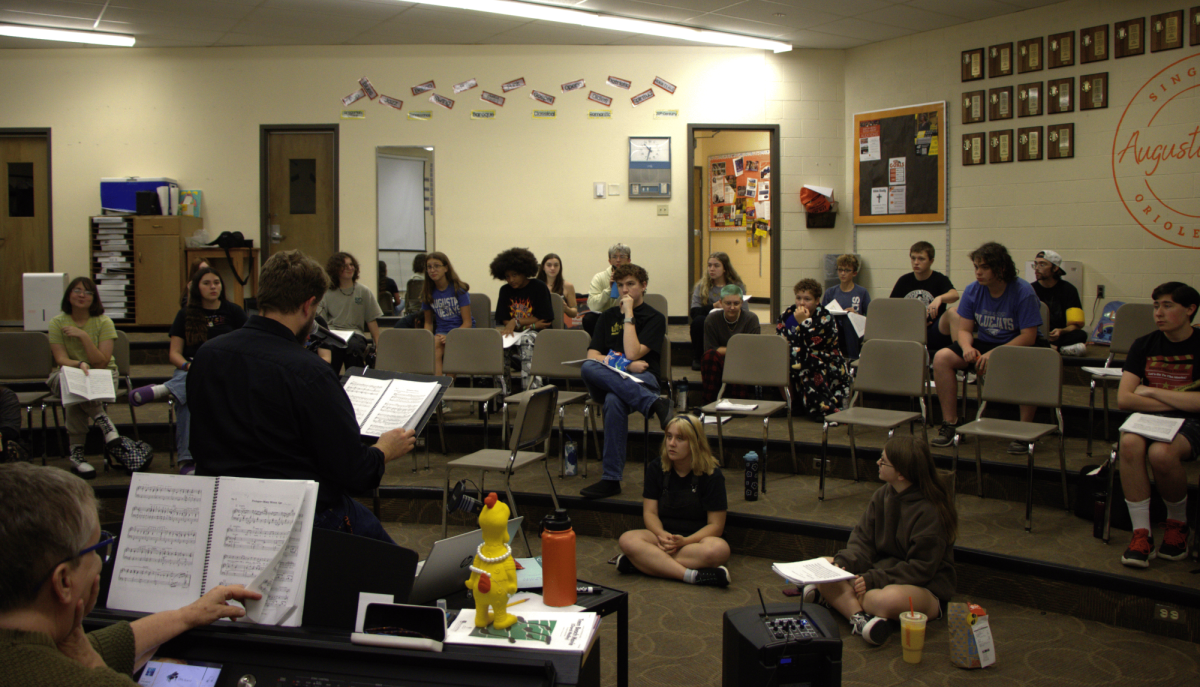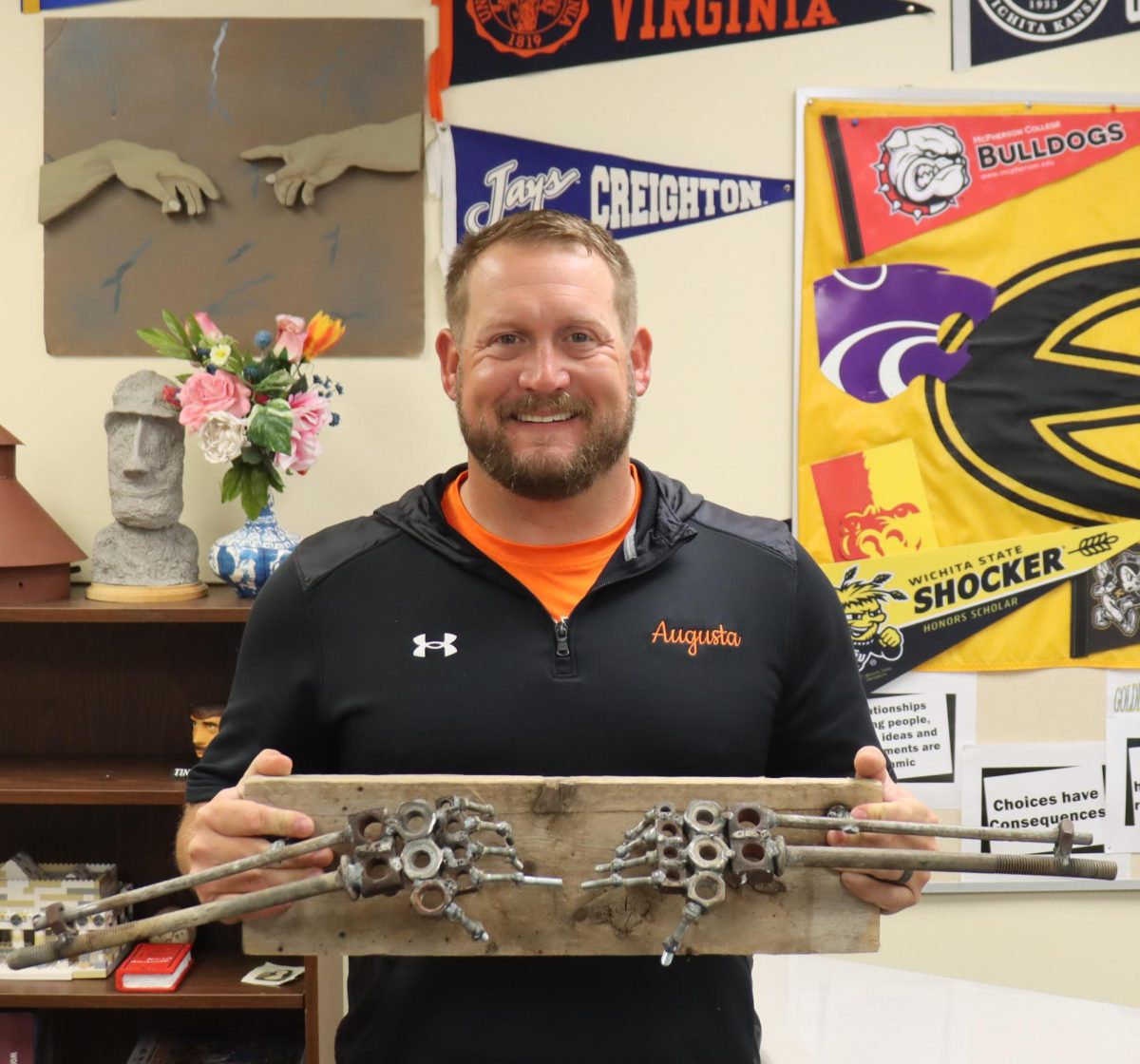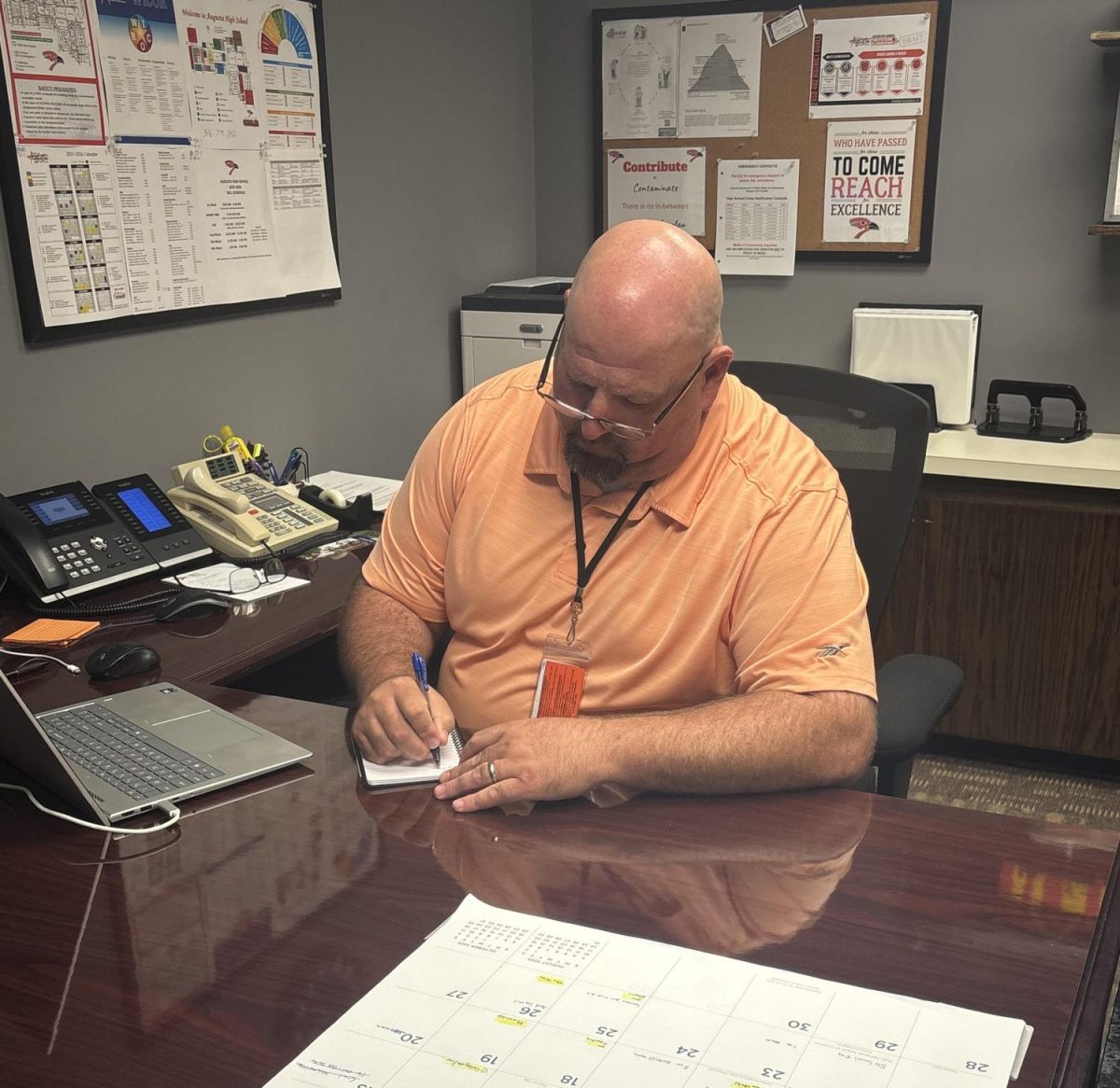With 25 years of experience across states and districts, counselor Audrey Neuschafer helps students navigate the complex world of scholarships.
“[I’ve been] here at this high school for five years,” Neuschafer said. “Before I came here, I was at the middle school in Augusta for two years.”
Neuschafer has consistently served as a scholarship coordinator in every high school she has worked.
“Every high school I’ve been in, I’ve been the scholarship coordinator,” Neuschafer said.
To stand out in scholarship applications, Neuschafer advises students to maintain a detailed record of extracurricular activities and leadership roles from their freshman year.
“Having a document that you work on from ninth grade through your senior year keeps you from having to try to think back,” Neuschafer said.
Neuschafer emphasizes the importance of good writing, and she suggests students use their English classes to hone their skills.
When it comes to deadlines, Neuschafer reminds students of the importance of attention to detail.
“Make sure you know when the deadline is first,” Neuschafer said.
Neuschafer also stresses the need for timely requests for recommendation letters, advising students to give recommenders at least two weeks to prepare.
Neuschafer highlights recent scholarship successes, particularly for students pursuing fine arts.
“Most recently, we had a bunch of kids go to Butler to audition for their fine art scholarship,” Neuschafer said, “Several of them got full tuition scholarships based on their performance that day.”
Senior Madison Busch took Neuschafer’s advice to heart. Busch is applying for an art scholarship and regrets not starting the process sooner.
“I really regret that, because now it’s kind of like crunch time, and I need to really get them done,” Busch said.
Senior Taylor Gresham, who needs to finance her future education herself, advises underclassmen to get involved in extracurricular activities.
“It looks good on your resume, and it opens up more scholarships,” Gresham said.
Neuschafer cautioned students about common mistakes, such as poor punctuation and capitalization in applications.
“The most common thing I see is probably that if it’s got to be written, write it in pen and not pencil,” Neuschafer said.
In addition to local scholarship opportunities, Neuschafer encourages students to explore scholarship clearinghouse sites, albeit with caution regarding potential spam.
“You should never pay to apply for a scholarship,” Neuschafer said. “That should never be a thing.”
As the scholarship application season progresses, Neuschafer remains a vital resource for students seeking to alleviate the financial burden of higher education. Neuschafer’s guidance helps pave the way for a successful transition to college.










